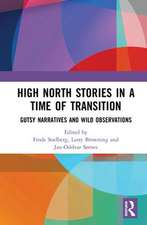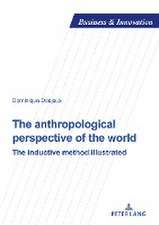Technoliberalism and the End of Participatory Culture in the United States
Autor Adam Fishen Limba Engleză Hardback – 26 apr 2017
| Toate formatele și edițiile | Preț | Express |
|---|---|---|
| Paperback (1) | 580.68 lei 6-8 săpt. | |
| Springer International Publishing – 17 iul 2018 | 580.68 lei 6-8 săpt. | |
| Hardback (1) | 584.10 lei 6-8 săpt. | |
| Springer International Publishing – 26 apr 2017 | 584.10 lei 6-8 săpt. |
Preț: 584.10 lei
Preț vechi: 687.18 lei
-15% Nou
Puncte Express: 876
Preț estimativ în valută:
111.78€ • 116.27$ • 92.28£
111.78€ • 116.27$ • 92.28£
Carte tipărită la comandă
Livrare economică 14-28 aprilie
Preluare comenzi: 021 569.72.76
Specificații
ISBN-13: 9783319312552
ISBN-10: 3319312553
Pagini: 389
Ilustrații: IX, 217 p.
Dimensiuni: 148 x 210 x 20 mm
Greutate: 0.42 kg
Ediția:1st ed. 2017
Editura: Springer International Publishing
Colecția Palgrave Macmillan
Locul publicării:Cham, Switzerland
ISBN-10: 3319312553
Pagini: 389
Ilustrații: IX, 217 p.
Dimensiuni: 148 x 210 x 20 mm
Greutate: 0.42 kg
Ediția:1st ed. 2017
Editura: Springer International Publishing
Colecția Palgrave Macmillan
Locul publicării:Cham, Switzerland
Cuprins
Introduction: Liberalism and Video Power.- Chapter 1: Histories of Video Power.- Chapter 2: Liberalism and Broadcast Politics.- Chapter 3: Corporate Liberalism and Video Producers.- Chapter 4: Technoliberalism and the Origins of the Internet.- Chapter 5: Technoliberalism and the Convergence Myth.- Chapter 6: Silophication of Media Industries.- Chapter 7: Neoliberalism and Terminal Video.- Chapter 8: Towards the Beginning of a New Participatory Culture.- Postscript.
Notă biografică
Adam Fish is Lecturer in the Sociology Department at Lancaster University, UK. As a cultural anthropologist, he examines digital industries that exercise their powers of persuasion and digital activists who challenge those powers. Much of his research focuses on the industry and activism surrounding digital video, of which he is both a critic and practitioner.
Textul de pe ultima copertă
This book examines whether television can be used as a tool not just for capitalism, but for democracy. Throughout television’s history, activists have attempted to access it for that very reason. New technologies provided brief openings, but these were often short-lived. This book elaborate on this history by using ethnographic data upon a new iteration of liberalism, technoliberalism, which sees Silicon Valley technology and the free market of Hollywood end the need for a politics of participation.
Caracteristici
Examines liberalism and video in eight chapters including five historical and ethnographic case studies Presents data based on three years of fieldwork and interviews with television and internet video producers Investigates the politics of several multi-channel internet video networks and examines entrepreneurial self-branding practices
























